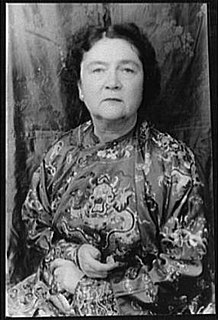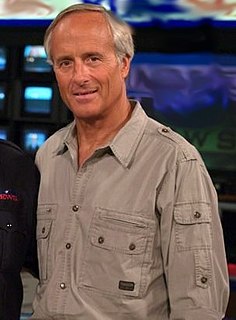A Quote by Jeanette Winterson
What should I do about the wild and the tame? The wild heart that wants to be free, and the tame heart that wants to come home.
Related Quotes
What should I do about the wild and the tame? The wild heart that wants to be free, and the tame heart that wants to come home. I want to be held. I don't want you to come too close. I want you to scoop me up and bring me home at nights. I don't want to tell you where I am. I want to keep a place among the rocks where no one can find me. I want to be with you.
Hear and attend and listen; for this is what befell and be-happened and became and was, O my Best Beloved, when the Tame animals were wild. The dog was wild, and the Horse was wild, and the Cow was wild, and the Sheep was wild, and the Pig was wild -as wild as wild could be - and they walked in the Wet Wild Woods by their wild lones. But the wildest of all the wild animals was the Cat. He walked by himself and all places were alike to him
Being tame is what we're taught: ... put the crayons back, stay in line, don't talk too loud, keep your knees together, nice girls don't...
As you might know, nice girls DO, and they like to feel wild and alive. Being tame feels safe, being wild, unsafe. Yet safety is an illusion anyway. We are not in control. No matter how dry and tame and nice we live, we will die. And we will suffer along the way. Living wild is its own reward.
Some kinds of animals burrow in the ground; others do not. Some animals are nocturnal, as the owl and the bat; others use the hours of daylight. There are tame animals and wild animals. Man and the mule are always tame; the leopard and the wolf are invariably wild, and others, as the elephant, are easily tamed.
[God] wants you to go home, look at your bucket of seed, and determine in your heart how much you'd like to sow. He wants you to consider thoughtfully your current circumstances, your life, your potential, and your finances. He wants you to involve your family. He wants you to pray about it. And then He wants you to come up with a plan.
If it's wild to your own heart, protect it. Preserve it. Love it. And fight for it, and dedicate yourself to it, whether it's a mountain range, your wife, your husband, or even (god forbid) your job. It doesn't matter if it's wild to anyone else: if it's what makes your heart sing, if it's what makes your days soar like a hawk in the summertime, then focus on it. Because for sure, it's wild, and if it's wild, it'll mean you're still free. No matter where you are.
In short, all good things are wild and free. There is something in a strain of music, whether produced by an instrument or by thehuman voice,--take the sound of a bugle in a summer night, for instance,--which by its wildness, to speak without satire, reminds me of the cries emitted by wild beasts in their native forests. It is so much of their wildness as I can understand. Give me for my friends and neighbors wild men, not tame ones. The wildness of the savage is but a faint symbol of the awful ferity with which good men and lovers meet.
English literature, from the days of the minstrels to the Lake Poets,--Chaucer and Spenser and Milton, and even Shakespeare, included,--breathes no quite fresh and, in this sense, wild strain. It is an essentially tame and civilized literature, reflecting Greece and Rome. Her wildness is a greenwood, her wild man a Robin Hood. There is plenty of genial love of Nature, but not so much of Nature herself. Her chronicles inform us when her wild animals, but not the wild man in her, became extinct.
Of course the Man was wild too. He was dreadfully wild. He didn't even begin to be tame till he met the Woman, and she told him that she did not like living in his wild ways. She picked out a nice dry Cave, instead of a heap of wet leaves, to lie down in; and she strewed clean sand on the floor; and she lit a nice fire of wood at the back of the Cave; and she hung a dried wild-horse skin, tail down, across the opening of the Cave; and she said, 'Wipe your feet, dear, when you come in, and now we'll keep house.
































